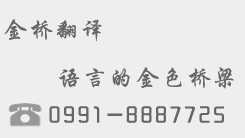Oh,I see!
原来如此!
和女朋友去电影院看《泰坦尼克号》,主角杰克对肉丝说‘You jump I jump.’,然后女朋友翻译说是‘你跳我也跳。’的意思,我低头寻思了一下淡淡的说,其实应该翻译为,'生死相随'。
哇,看完觉得很装逼有木有!
虽然是个段子,但不无道理。中式的英语翻译确实令人哭笑不得,尤其是遇见外国人的时候。
比如,当你想表达“原来如此”,我想有不少人都会脱口而出‘Soga’(✘),但说英语的人根本就听不懂啊,因为这是日语中‘原来如此’的表达。
1. 原来如此
-
原来如此,一经你解释我就明白了。
[误](✘) So it is. I understand soon after your explanation.
[正](✔)So that's how it is. I understand soon after your explanation.
注:So it is. 的意思是“的确如此”,它是用来表示赞同对方观点。
例如:
A: It is a fine day today!
今天天真好啊!
B: So it is.
是的呀!
而在表达恍然大悟时,很多人会说'Soga'。但这并不是英语,而是日语中"そっか"(sokka)或"そうか"(souka)的音译。是"原来如此"、"这样啊"的意思。
-
英文可以这样表达‘原来如此’:
(✔)So that's how it is.
(✔)So that explains it,
(✔)Oh, I see.
2. 萝卜青菜,各有所爱。
萝卜青菜,各有所爱。
-
[误](✘) Some prefer radish but others prefer cabbage.
[正](✔) Tastes differ.
注:Tastes differ/vary. 是句英语谚语。
-
除此以外,‘萝卜白菜各有所爱’还可翻译成:
(✔)No dish suits all tastes.
(✔)You can never make everyone happy.
(✔)One man's meat is another man's poison.
3. 嘴甜
-
老师很喜欢这个嘴甜的小姑娘。
[误](✘)The teacher likes this sweet-mouthed little girl very much.
[正] The teacher likes this honey-lipped little girl very much.
注:中国人喜欢说“嘴甜”,但 honey-lipped 更符合英美人的语言习惯。
4.拍马屁
-
同学们都很讨厌他,因为他经常拍老师的马屁。
[误](✘)The student all dislike him because he often pats the teacher's ass.
[正](✔)The students all dislike him because he often licks the teacher's boots.
注:以前在欧洲,臣民见到国王与王后往往要匍匐在地,亲吻他们的靴子。后来,人们将lick the boots 引申为“为了某种目的而讨好某人”,它与汉语的“拍马屁”含义一样。
在美国英语中,“拍马屁”还有另一种说法,即 polish the apple,它典出以前的学生用擦亮的苹果来讨好老师。
5. 被甩
-
你听说了吗?迈克把他的女朋友给甩了。
[误](✘)Have you ever heard that Mike broke up with his girlfriend.
[正](✔)Have you ever heard that Mike dumped his girlfriend.
注:break up with sb. 虽然表示“与某人分手了”,但并没说明是谁先提出来的。而dump 的原意指“倾倒垃圾”,用在这里则表示‘像倒垃圾一样地甩掉’。
6. 中华人民共和国主席
中华人民共和国主席
[误](✘)Chairman of the People's Republic of China
[正](✔)President of the People's Republic of China
注:以前,我们一直将“主席”翻译为 chairman,例如:great leader Chairman Mao(伟大领袖毛主席)。其实“主席”与 chairman 并不等义,chairman 在英语中通常指会议或某一具体组织的负责人,它的权力和重要性不及中文的“主席”。
从1983年,在我国《宪法》的英译单行本中开始使用 President一词,并沿用至今。另外,国内仍有不少词典把“班/级长(学校的)”译为“class monitor”,这是“四人帮”时代的产物,那时的“班长”是专司监管学生的,所以译作“monitor”。而“班长”的正确译文应该是“class president”。
7. 懒虫
-
都十点钟了。起床了,懒虫!
[误](✘)It's ten o'clock. Get up, lazy worm!
[正](✔)It's ten o'clock. Get up, lazy bones!
注:“懒虫”并非真是一条虫,只不过被用来形容人很懒惰罢了。英语里与之对应的说法是lazy bones(懒骨头)。注意,这里的 bone 应以复数形式出现,也许是因为不会只有一根骨头懒吧!
8. 拖后腿
-
我希望你不要拖我的后腿。
[误](✘)I hope that you won't pull my leg.
[正](✔)I hope that you won't hold me back.
注:pull one's leg 是“愚弄某人,开某人的玩笑”的意思,相当于 make fun of sb.。英语中与“拖后腿”相对应的表达是 hold sb. back 或 be a drag on sb. 等。
9. 嘴硬
-
他一向嘴硬,从不认错。
[误](✘)He has always got a hard mouth and never admit a fault.
[正](✔)He never says uncle.
注:say (cry) uncle,主要是男孩们打架时的用语,当一方想制服另一方时,就用命令的口气说:“Say uncle!”这时,有的孩子为了表示不服输,就是不说。后来,say uncle 就成了“服输”的代名词,而 not say uncle 就相当于“嘴硬”了。
10. 东施效颦
-
东施效颦。
[误](✘)Doingshi imitates Xishi.
[正](✔)The ugly imitates the beautiful in such a distorted way that the ugliness of the ugly becomes worse.
注:把原文按照字面意思直译过来,恐怕只有中国人能够理解。要想让外国人明白这个中国成语,就要对译文进行解释性加工了。
同样,“情人眼里出西施”不是 Xishi is in the eye of the beholder,而是 Beauty is in the eye of the beholder。







